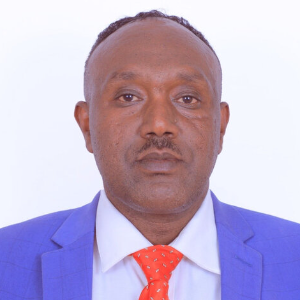Title : Cumulative trauma and refugee alcohol misuse in eritrean refugees living in Ethiopia: Structural equation modeling
Abstract:
Aim: This study was aimed at testing an established model, indicating co morbidity of alcohol misuse with psychological symptoms (PTSD and depression) and its association with cumulative trauma.
Methods: In a cross-sectional survey, 562 adults were randomly selected from Eritrean refugees living in Mai Aini camp, Ethiopia. The Tigrigna versions of measures, namely: Pre and Post-Migration Living Difficulties checklist, Primary Care PTSD screener (PC-PTSD), Oslo Social Support Scale (OSS-3), Sense of Coherence Scale (SoC-13),Center for Epidemiologic Depression Scale (CES-D), Coping Style scale and Fast Alcohol Screening Test (FAST) were administered. Confirmatory Factor Analysis and structural equation modeling (SEM) were employed to test pre-specified models.
Result: Alcohol misuse has significantly loaded onto the second-order common factor (β =0.21, p<0.001) with symptoms of PTSD and depression. Cumulative trauma is associated with this co morbid 'poor mental health' defining depression, PTSD and alcohol misuse both directly (β=0.76, p<0.001), and indirectly through psychological and social protective factors (indirect standardized coefficient=0.153, p=0.002) in a model which fitted to the current data [χ2/df =2.508, CFI=0.868; TLI=0.855, RMSEA= 0.052 (0.055 0.066)].
Conclusion: Cumulative trauma has directly and indirectly predicted poor mental health. Integrated assessment and intervention of alcohol misuse should be considered in refugee mental health care.
Funding Statement: This study was financially supported by Addis Ababa University and University of Gondar, Ethiopia.
Declaration of Interests: Authors declare that there is no conflict of interest.
Ethics Approval Statement: This study was conducted after obtaining an ethical clearance from Institutional Ethical Review Board (IRB) of College of Health Sciences in Addis Ababa University (AAU) under approval letter (protocol number: 052/14/Psy). Indeed, Ethical issues as outlined by declaration of Helsinki for human participants in medical research were adhered.
Keywords: Alcohol Misuse, Poor Mental Health, Cumulative Trauma, Eritrean Refugees, Structural Equation Modeling




